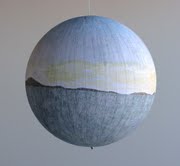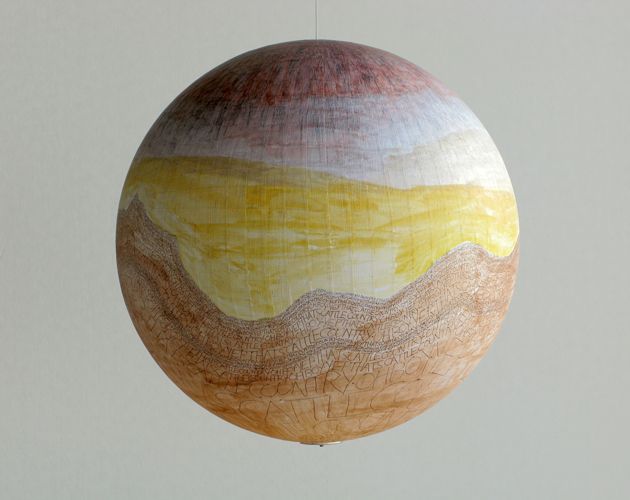Some people cut themselves, some do drugs. I try to understand physics. Cosmology, to be precise.
I could have spent the last few decades banging my head against a telescope and achieved the same results I’ve gotten reading about string theory, bubble-verses and, oh my God, Schrödinger’s goddamn cat. Yet somehow, every few years I manage to forget what Stephen Hawking did to me that summer in Boston, or how Richard Feynman left me sprawled and groaning on the bedroom floor, and after glancing at just a few pages of elegant introduction, succumb again to another science popularizer with great blurbs.
The first few days are always exciting. Thrilling, even, as he or she takes me by the hand and leads me through special relativity, general relativity and black holes, ideas that I understand just barely enough to wish I understood more. But then the writer asks me to do something I’m not capable of. The proposal is never threatening, but it always amounts to this: Imagine another dimension. OK? Just imagine another dimension! C’mon, what are you waiting for? Imagine it!
I’m not ashamed to admit that I have, on more than one occasion, faked imagining. Pretended, even to myself, that I was visualizing a fourth or tenth dimension, a whole other, discrete spatial reality coexisting with our own, while I secretly strained to catch a glimpse of such a thing wafting through my tiny, deeply inadequate mind.
Sometime last fall, while reading page 70-something of Brian Green’s The Hidden Reality, a wonderful survey of possible multiverses, I started to sense that The Order to Imagine was imminent, and took a much-needed break. I put the book in my lap, thumbed its pages, and scanned the titles on my shelves. I slumped a little, fell into what my wife calls “that early-onset Alzheimer’s look,” and lingered over some old memories. Not of books. And not of the places where I’d read them or the people I knew at the time. What came to me weren’t memories at all, in fact, but senses that had emerged during my reading of books and were still present—faded mental photographs of what Wallace Stegner’s West looked like to a 23-year-old on the Lower East Side in 1984. Boozy Cheever commuter-train reveries while driving Volkswagens. Desire. Rage. Awe. Nostalgia. Fleeting, but large and substantial, they coalesced into houses, even cities, sprawling complexes of almost-visible realities, inchoate yet not amorphous, full of dark attics and abandoned lots, alleyways, highways, tunnels, and basements.
The novelist and the cosmologist are engaged in similar pursuits. Literature doesn’t depict, it observes. It observes a reality that it conjures into existence by observing it, just like, well, like Schrödinger’s goddamn cat.
I own a lot of books—many that are not wonderful but that I have real affection for, the way one does a hometown. With books, as with cities, good and bad can sometimes seem beside the point. I can either live in a place or not. Take up residence in a book, even if just for the night, or leave. A million people may live in Dallas but I will never be one of them. Not because it isn’t a perfectly nice place in many ways, but because I feel no desire to get lost in it. If a book can’t disorient me just a little bit, if it can’t get me some kind of lost, I won’t stay with it for very long.
I don’t mean lost from myself. Literature provides passage toward the self, not away from it, promising escape only from the temptations of escapism. It makes visible a world that exists in the spaces between things: book and reader, author and page, “I” and “Thou.” Another dimension. The novelist and the cosmologist are ultimately engaged in similar pursuits. Literature doesn’t depict, it observes. It observes a reality that it conjures into existence by observing it, just like, well, like Schrödinger’s goddamn cat.

Touring my library, I sensed something real but elusive, a space curling slightly off of, or dropping just below, the spaces I could see. Physicists offer all sorts of possible explanations for the existence of this kind of reality, many of them involving the convolutions space and time go through as they are subjected to observation, recording, interpretation, history, and memory. The elements of literature.
Astrophysicists can frequently seem to be engaged in the work of novelists. And by the same token, the best literature is often unabashed cosmology. I began reading physics when I started reading Chekhov:
He went on to the bridge, stood a little, and, quite unnecessarily, touched the sheets. They felt rough and cold. He looked down at the water. . . . The river ran rapidly and with a faintly audible gurgle round the piles of the bath-house. The red moon was reflected near the left bank; little ripples ran over the reflection, stretching it out, breaking it into bits, and seemed trying to carry it away.
“How stupid, how stupid!” thought Ryabovitch, looking at the running water. “How unintelligent it all is!”
Now that he expected nothing, the incident of the kiss, his impatience, his vague hopes and disappointment, presented themselves in a clear light. It no longer seemed to him strange that he had not seen the General’s messenger, and that he would never see the girl who had accidentally kissed him instead of someone else; on the contrary, it would have been strange if he had seen her. . . .
The water was running, he knew not where or why, just as it did in May. In May it had flowed into the great river, from the great river into the sea; then it had risen in vapor, turned into rain, and perhaps the very same water was running now before Ryabovitch’s eyes again. . . . What for? Why?
“The Kiss” (and Vanya, and all of it) sent me toward other stories that explicitly made the universe of the mind their subject. Richard Ford articulated for me the metaphysics of baseball; Jennifer Egan convinced me that I was composed of the same stuff as a young, club-hopping, female fashion model. Harold Pinter helped me hear silence, and Oliver Sacks gave me new understandings of words like “vision” and “holy.” I eventually found myself making a small hobby of reading the complementary, if often infuriatingly frustrating, literature of cosmology.
“Literature” might be a stretch, I suppose. But just as Chekhov can sound like a cosmologist, a talented physics writer like Richard Feynman often seems to be channeling the good doctor:
Some people say, “How can you live without knowing?” I do not know what they mean. I always live without knowing. That is easy. How you get to know is what I want to know.
I finished The Hidden Reality without any head trauma. Whether or not Feynman, Hawking, Greene, and their ilk are great writers, their work is important to me. Not despite my failure to grasp many of their ideas, but because of it.
Their books may be my least favorite to read, but as I do, and the universe they describe grows curiouser and curiouser, I become more intrigued. Authors who write well about space and time know there is no distance as great as the thickness of a human skull; that the chasms separating one person’s reality from another’s are as worthy of our attention as interstellar space.
Cosmology is Chekhovian work: watching distances collapse and expand, ghost images from various histories reasserting themselves, futures circling back to the present, minds struggling to reconcile themselves to ever-shifting notions of truth. As I read the work of physicists, the limits and mysteries of my own mind become more apparent to me. Even as I look around for a nice, big telescope to bang my ahead against, I feel more conscious, more determined to transcend those limits, if only a little bit, for only a little while.
And that’s when I pick up a good novel.


